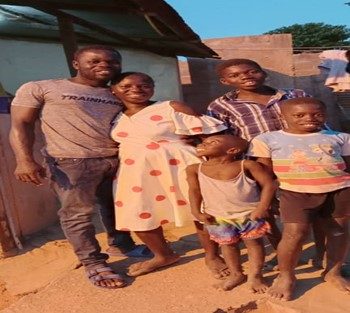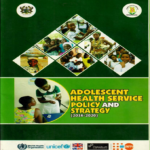Introduction
Before the Gender Model Family (GMF) approach was introduced to the Nyamendam community in Ghana’s Central Region, the home of Mr. Razak Aidoo and his wife, Madam Mary Amokwandoh, was marked by constant conflict. Their marriage, once a source of joy, had become strained with daily disagreements. A major issue was the unequal division of responsibilities, particularly concerning financial matters. Madam Mary, a successful businesswoman, was the primary breadwinner, significantly contributing to the family’s income. This success, however, made her husband, Mr. Razak, feel emasculated. His business was struggling, and he began feeling overshadowed by his wife’s financial achievements. This sense of inadequacy caused him to retreat from participating in household responsibilities, which only deepened the tensions in their home.
The Intervention
The introduction of the GMF approach marked a turning point for the Aidoo family. Mr. and Mrs. Aidoo and their two children participated in training sessions to improve health outcomes by promoting gender equality within the home. The GMF curriculum included key modules such as Daily Activity Profile, Decision-Making and Sorting Pile, The Triple Role of a Woman, and Creating a Family Gender Equality Promotion Action Plan.
The training sessions tackled household imbalances and fostered a collaborative spirit and respect between partners. The Aidoos began recognizing the deep-rooted inequalities in their family dynamic through these exercises. Mr. Aidoo reflected on the changes, saying,
“Before the training, my wife was very authoritative, and I felt like I couldn’t even meet her eye-to-eye. After the GMF sessions, she has become more understanding and respectful. Even my external family members have noticed the positive change.”
Mr. Aidoo’s frustration, stemming from his sense of inadequacy, had previously led him to withdraw from key family responsibilities, such as supporting their children’s health or contributing to household chores. However, the GMF training helped him see the importance of his involvement. Through the Daily Activity Profile exercise, the couple identified the unequal distribution of tasks, and the Decision-Making and Sorting Pile exercise equipped them with the tools to communicate more effectively and make joint decisions.
Mr. Aidoo began to appreciate the many roles his wife balanced—both in the home and in her business. On the other hand, Madam Mary recognized how her success had unintentionally impacted her husband’s self-esteem. The most powerful outcome of the GMF sessions was the creation of a Family Gender Equality Promotion Action Plan. This plan outlined how the couple would share responsibilities whether financial, parenting, or household-related, and how they would work together as a team moving forward. For Madam Mary, the transformation was equally profound. She shared,
“Now, my husband willingly takes our sick children to the hospital without waiting for me to handle it alone. He is more involved and supportive in ways I never imagined.”
The change in the Aidoo family reflects the GMF approach’s deep impact. The transformation in their household is profound; responsibilities are shared more equally, decisions are made collaboratively, and a new foundation of mutual respect has been built. The Aidoo family has become an example of how couples can build stronger, more equitable homes for improved health outcomes.
Conclusion
The success of the Aidoo family is not an isolated story. Their journey symbolizes a broader shift occurring in the Nyamendam community, where other families are starting to reassess their household dynamics and embrace the principles of gender equality and shared responsibility. The positive changes in the Aidoo home have ripple effects, inspiring others to create more balanced and harmonious family environments.
The Initiative
This transformation is part of a larger initiative led by ARHR in partnership with nine organizations across northern and southern Ghana to improve primary healthcare outcomes and promote gender equality. The Putting Women and Girls at the Center of Primary Health Care initiative, funded by Co-impact, uses the GMF approach to break down gender roles that often prevent women and girls from fully participating in healthcare decisions and accessing care.
The GMF approach, a pioneering framework founded and facilitated by Send Ghana, encourages families to share responsibilities traditionally placed on women, such as domestic chores and caregiving, which can limit their ability to seek medical attention or make health decisions. By promoting gender equality within the household, the GMF approach helps to improve overall health outcomes for the family.
Credit:
Our Implementing Partner in Central Region:
Mr. Gilbert Kofi Germain, The Executive Director, Young and Lonely Foundation



